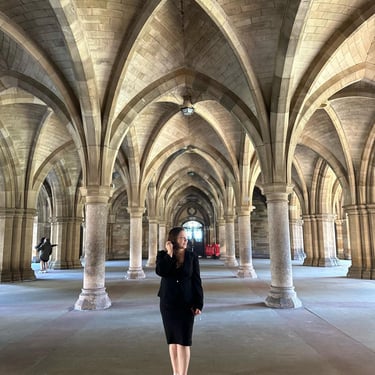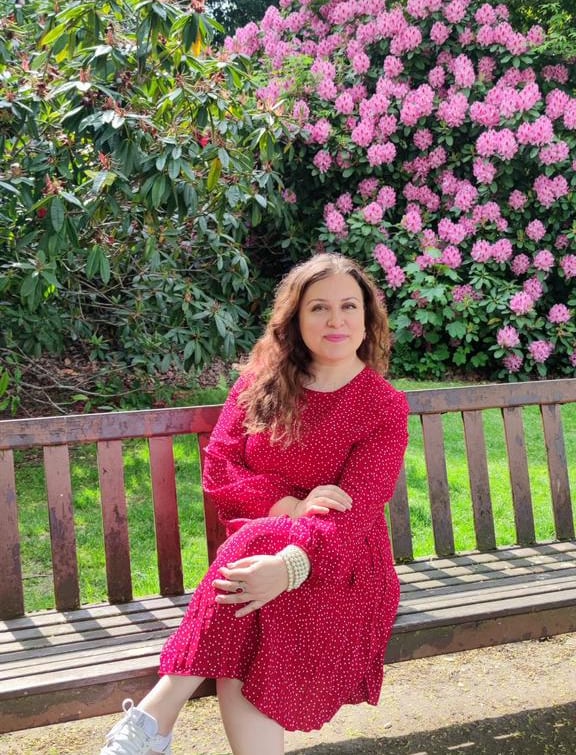Samira Hasanzade's Impactful Research and Community Engagement
Samira Hasanzade’s research fosters a growth mindset in children affected by conflict, promoting peacebuilding and sustainable development, with insights applicable to global conflict-affected regions.
ALUMNI CHRONICLES
8/12/20242 min read
I am Samira Hasanzade, with an MEd and a PhD in Education from the University of Glasgow.
How do you think your research will impact the broader community or society?
My research focuses on exploring innovative approaches to cultivating a growth mindset among children, specifically in the context of peacebuilding education and sustainable development. I have been working with marginalized children in Azerbaijan, who have experienced the severe impacts of war. With the resolution of the Karabakh conflict, it is essential to build a resilient society that promotes and maintains positive peace. I believe that nurturing a growth mindset in children through tailored teaching and learning methods can be a key strategy in this process. The insights from this research could provide a model for fostering peaceful environments in regions affected by warfare and conflict worldwide. Peacebuilding is crucial for the sustainable development of societies.
What advice would you give to those considering a PhD in the future?
When considering a PhD, clearly articulate your reasons for pursuing it and how it aligns with your long-term goals. Research potential career paths related to your field of interest. When choosing your research area, think about how your work can contribute to society and address real-world challenges, demonstrating the relevance and impact of your research.
PhD programs offer the chance to explore and shape your research interests. Reflect on your adaptability and whether your past experiences have prepared you for interdisciplinary work. Highlight any experiences that showcase your problem-solving skills and resilience in overcoming obstacles, as these are crucial for navigating complex research projects.
Before your interview, thoroughly research the PhD program and its faculty. Understand the department’s research priorities, ongoing projects, and faculty expertise. This will help you ask informed questions and show your enthusiasm for the program.
Finally, remember that pursuing a PhD is a significant commitment. Carefully consider your motivations, research interests, and long-term goals before making your decision.
What do you enjoy most about living in Glasgow?
Glasgow is a city that offers something for everyone, with friendly people, stunning natural surroundings, and a supportive university team. While the weather can be rainy, I find the rainy days quite romantic. There is a charm in walking through the city's beautiful parks, enjoying the scent of moist soil and freshly cut grass.
Most importantly, the University of Glasgow provides an exceptional environment for academics and researchers. It offers a wealth of resources, opportunities, and a vibrant academic community that fosters collaboration and innovation. The University is a place where you can thrive and make significant contributions to your field.
Why did you join the University of Glasgow Azerbaijan Alumni Association?
I joined the University of Glasgow Azerbaijan Alumni Association to contribute to the community of newcomers and promote the university. It is also an excellent opportunity to expand my network, learn from peers, and participate in the association's fantastic events. This platform allows me to stay connected with the university after graduation and engage with individuals who share common interests. Being part of the association enables me to give back, maintain connections, and forge new relationships within the university community.




